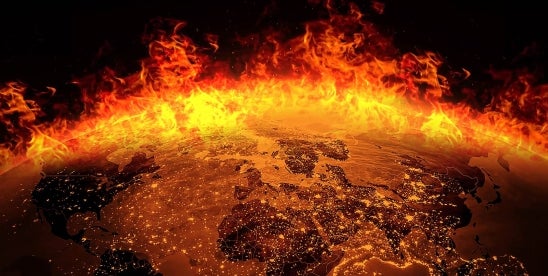Quick hits
- Wildfires in the Los Angeles area have led to evacuation orders affecting tens of thousands of residents and creating dangerous travel conditions.
- Employers affected by the disaster may need to consider their emergency preparedness plans, immediate workplace safety risks, and employment and staffing concerns while maintaining essential business functions.
Wildfires caused by strong winds and drought have ravaged areas around Los Angeles, destroying homes and businesses. As firefighters work to bring the fires under control, tens of thousands of residents are being evacuated and schools are closed. Thousands across Southern California have lost power and many more are at risk of preventative blackouts, taken as a precautionary measure to prevent further fires.
The wildfires, like similar natural disasters such as hurricanes, earthquakes and floods, posed additional challenges for employers, forcing them to adapt their operations and test their emergency response plans. For others, the disaster is a devastating reminder of the importance of preparation – and its limits – as natural disasters can strike quickly and without warning.
Here are some important considerations for employers affected by the recent wildfires.
Emergency preparedness
- Emergency plans and communication protocols. Employers whose employees or workplaces are affected by the wildfires may want to review their emergency plans and communications protocols and consult emergency contact lists. Communication with employees is critical to ensuring employee safety, keeping track of employees during evacuations, and informing employees of potential hazards affecting the workplace or transportation.
- Business interruptions. Affected employers may want to determine which business functions are critical and implement plans to maintain those operations during the wildfires.
- Flexible working arrangements. Due to evacuation orders and travel advisories, many employers may need to close physical workplaces and/or employees may need to make other work arrangements. Employers may wish to consider temporary remote work arrangements, adjusting schedules to accommodate transportation or security issues, or temporarily suspending operations if necessary to ensure safety.
Safety and health at work
- Commitments to workplace safety. During a natural disaster, employers' workplace safety obligations become in some ways even more complicated and challenging. The California Department of Occupational Safety and Health (Cal/OSHA) requires employers to ensure that employees are not exposed to untreated hazards, even if employers are displaced from their normal operating environment during a natural disaster.
- Forest fire smoke. Wildfire smoke poses health risks that can impact employers. Cal/OSHA has a specific wildfire smoke standard that applies to most outdoor workplaces where the Air Quality Index (AQI) for airborne particles 2.5 microns or smaller (PM2.5) is 151 or greater or where “Employers[s] should reasonably anticipate that employees may be exposed to wildfire smoke.” Cal/OSHA has posted additional information about wildfire smoke standards on its website.
California Wage and Hour Requirements
- Non-Exempt Employees. Even in workplace disruptions caused by wildfires, California law and the Fair Labor Standards Act (FLSA) require employers to pay non-exempt employees for all work performed and all hours worked to be recorded and tracked. Such disruptions can also lead to overtime for other employees who are able to work.
- Exempt employees. Exempt employees must continue to be paid for a full week if they work part of the workweek, even if their physical workplace is closed or they are required to stay home and/or evacuate.
- Reporting time compensation requirements. California requires employers to pay “report time” each day an employee reports for a scheduled work day but is provided with less than half of the usual or scheduled day’s work. However, reporting time requirements do not apply if “the work interruption was caused by force majeure or another reason that is beyond the employer’s control.” (IWC Orders 1-16, Section 5(C)).
Los Angeles Fair Work Week Ordinance
The City of Los Angeles has confirmed that store closures due to wildfires are considered an exception to Los Angeles' Fair Work Week ordinance. The regulation typically requires covered employers to notify their employees of their work schedules at least fourteen days before the start of the work period and allows employees to cancel hours if an employer makes changes to a shift or workstation after the notice period has expired. The regulation provides for exceptions when the employer's operations are affected due to force majeure, including fires, floods, earthquakes, epidemics, quarantine restrictions and other natural disasters or civil unrest.
Leaves of absence
Employers may be required under the California Family Rights Act (CFRA) and/or the Family and Medical Leave Act (FMLA) to provide leave to employees whose medical conditions are severe or worsened by a natural disaster, including wildfire smoke. Employees may also need CFRA/FMLA leave to care for a covered family member suffering from a serious health illness or medical emergency due to a natural disaster.
Cal-WARN
The Los Angeles wildfires may force employers to reduce staff and/or temporarily suspend operations. The California Worker Adjustment and Retraining Notification Act (Cal-WARN) generally requires 60 days' notice for mass layoffs, plant closings, or relocations of at least 100 miles. However, Cal-WARN exempts employers from providing this notice in “physical disaster” situations.
